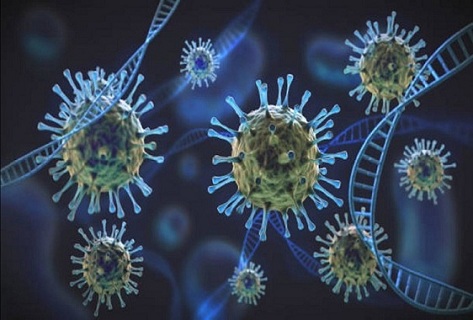BREAKING! Saudi Scientists Identify Variants With R203K/G204R Mutations On SARS-CoV-2 Nucleocapsid (N) Protein That Causes Higher Viral Loads!
Source: SARS-CoV-2 Genomic Surveillance Sep 03, 2021 4 years, 3 months, 2 weeks, 3 days, 18 hours, 55 minutes ago
SARS-CoV-2 Genomic Surveillance: Thailand Medical News would first like to bring up certain issues with regards to the genomic surveillance of the SARS-CoV-2 coronavirus and to highlight how badly it is being managed throughout the world.

While there has been extensive focus on understanding the amino acid mutations in the Delta variant’s Spike protein, the mutational landscape of the rest of the SARS-CoV-2 proteome (25 proteins) remains poorly understood.
Many virologists and genomic specialists have been over focusing on mutations in the Spike proteins of the SARS-CoV-2 coronavirus instead of also including mutations found on the Nucleocapsid (N) Proteins and on the rest of the SARS-CoV-2 genome.
Contrary to the ‘old school thoughts’, the whole genome and mutations found on the rest of the genome do play a very important part in not only the transmissibility, virulence and immune evading properties of the emerging variants but they also play a critical role in the different pathogenesis routes, in the ways the various host cellular pathways are affected and also in the manifestation of different clinical outcomes.
To make matters more complicated, the mutations also work in such a way that a particular combination of mutations, complement each other and produces different outcomes or attributes.
Also many studies are based on publicly available data from the GISAID database, which may carry biases associated with sequencing disparities across countries and reporting delays.
Though there is extensive
genomic surveillance, there is a lack of clinical annotation of the genomes, limiting the ability to assess the clinical impact of the country-specific differences in the variants.
Furthermore, stupidly the GISAID database does not record mutations in the recently discovered ORFs in the SARS-CoV-2 genome such as ORF10, ORF9b, and ORF9c. The assignment of the mutations in these ORFs may reveal further differences between SARS-CoV-2 variants and also constitute critical data.
It seems that the world is developing vaccines, therapeutics and trying to understand the pathogenesis of the virus and also how it affects the various human host cellular pathways and immune system and also find ways to treat the various conditions when in the first place we do not even have a complete and full data about what we are dealing with! Researchers are only working with half-baked data so far!
I personally challenge anyone out there who claims that what I am mentioning here is not relevant or nonsense.
In a new study by researchers from the King Abdullah University of Science and Technology (KAUST)-Saudia Arabia , the Ministry of National Guard Health Affairs-Saudi Arabia and the MOH-Saudi Arabia have identified new mutations on the SARS-CoV-2 Nucleocapsid (N) protein that was found to modulate host interactions and also cause increased viral loads in COVID-19 patients.
The study team sequenced 892 SARS-CoV-2 genomes collected from patients in Saudi Arabia from March to August 2020. From the assem
bled sequences, the team estimated the SARS-CoV-2 effective population size and infection rate and outline the epidemiological dynamics of import and transmission events during this period in Saudi Arabia.
Importantly the study findings showed that two consecutive mutations (R203K/G204R) in the SARS-CoV-2 nucleocapsid (N) protein are associated with higher viral loads in COVID-19 patients.
The study’s comparative biochemical analysis reveals that the mutant N protein displays enhanced viral RNA binding and differential interaction with key host proteins.
The study found hyper-phosphorylation of the adjacent serine site (S206) in the mutant N protein by mass-spectrometry analysis.
Alarmingly detailed analysis of the host cell transcriptome suggests that the mutant N protein results in dysregulated interferon response genes.
The study findings provide crucial information in linking the R203K/G204R mutations in the N protein as a major modulator of host-virus interactions and increased viral load and underline the potential of the nucleocapsid protein as a drug target during infection.
The study findings were published on a preprint server and are currently being peer-reviewed.
https://www.medrxiv.org/content/10.1101/2021.05.06.21256706v2
Most importantly this is one of the few studies that demonstrate the need to pay attention to mutations in the other parts of the virus genome as these too play a critical role in the characteristics of the emerging variants bearing these mutations.
Please help to support this website and all our research and community initiatives by making a donation. Your help counts. Thank You. https://www.thailandmedical.news/p/sponsorship
For more on the latest from the
Genomic Surveillance of the SARS-CoV-2 Coronavirus, keep on logging to Thailand Medical News.
